Volunteers' Week takes place from 1 - 7 June 2021. At Hampshire Cultural Trust, we have an extraordinary team of volunteers, who give their time, energy and passion to make an invaluable contribution to communities across the county. We're marking this year's Volunteers' Week with a series of articles that give just a very small glimpse into the incredible work of our volunteers. Here, our Curatorial Liaison Manager, Ross Turle, looks at the work carried out by volunteer Stephen Miles in the identification and cataloguing of solitary bees.
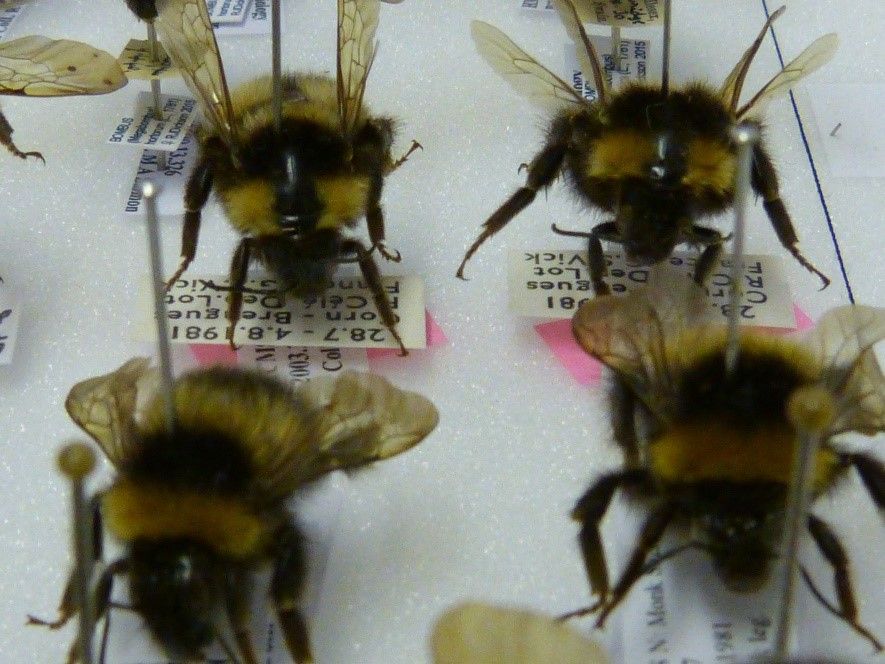
There are around 270 species of bees in the UK, the most well-known probably being honey bees and bumblebees, but others include mason bees, mining bees and solitary bees. The Natural Science collection held by Hampshire Cultural Trust has a comprehensive collection of native insects, including over 3700 bees. All those bees have had to be organised, labelled, catalogued and, in some cases, identified. In the case of our solitary bees, a great deal of that work was painstakingly done by our volunteer Stephen Miles, with the aid of the Handbook of The Bees of The British Isles.
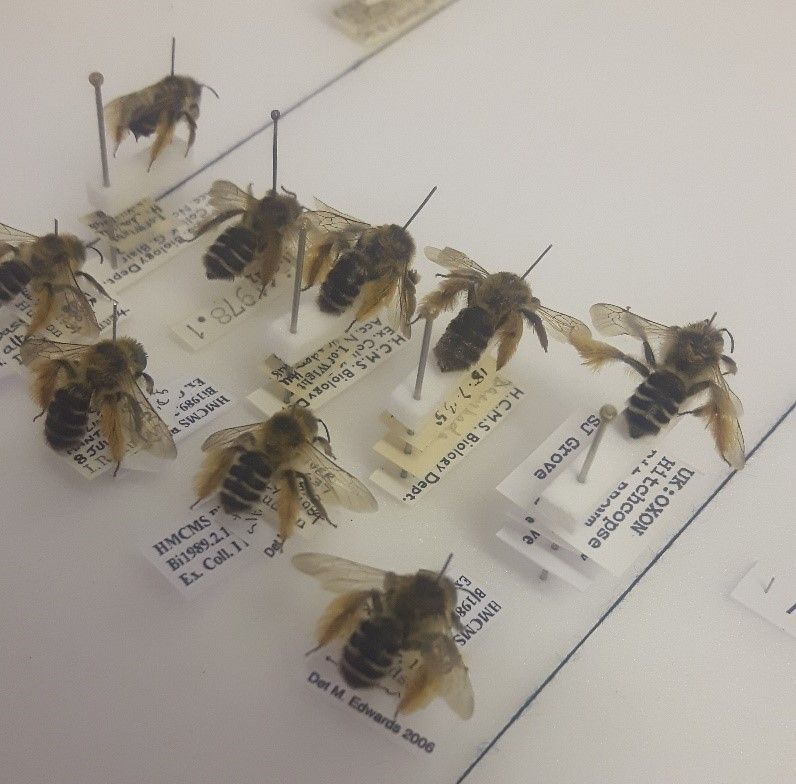
Solitary bees do not produce honey and as the name suggests, they do not live in hive colonies but nest in the ground or old beetle holes. When the bees first came to us, they were in their original boxes as provided by individual collectors. Many of the bees were unidentified or, in the case of the older collections, they were arranged as what is known as ‘standing over the name’, which means that a block of specimens of the same type are displayed together with the name of the bee’s below.
The first thing to do was to identify the specimens that needed identifying and re-order those bees that had become mixed up. Whilst doing this, ‘determination labels’ were added, these provide details of the species, and ‘joining labels’, which record the ‘where, when, how and who’ and also give the museum’s catalogue number. You might think that once a species or sub-species is identified that is that - but no! Continuing research into species leads to the revision and sub-division of species and their attributes. This often leads to name changes and very occasionally the discovery of a new species.
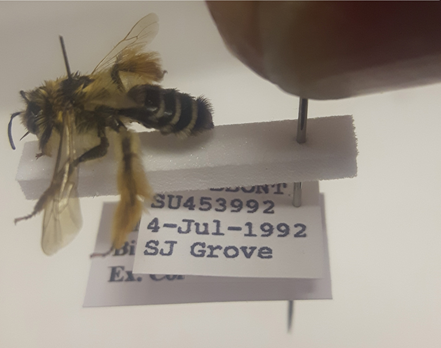
Whilst doing this, the specimens often had to be cleaned as well, as some were covered with dust, Anthrenus (carpet beetle) droppings or mould. Ensuring that specimens are clean and free of parasites is very important if you do not want them to deteriorate or be eaten! Part of the care of the natural science collections involves the routine freezing of specimens to ensure that any uninvited live specimens that feast on the items are eliminated.
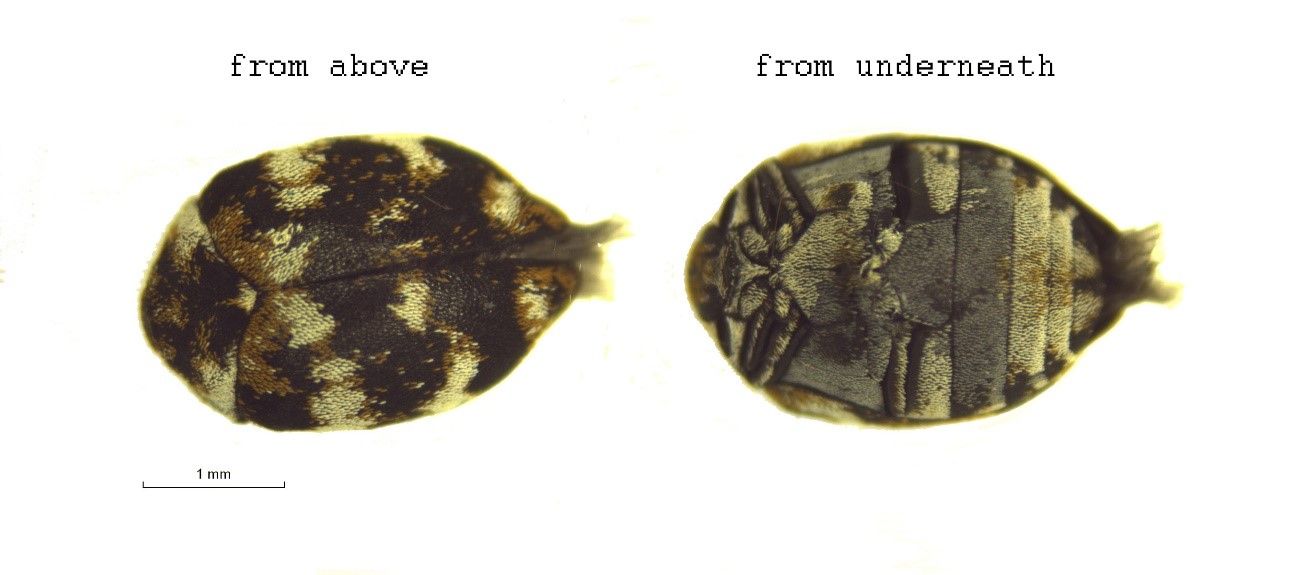
The specimens were then laid out in the correct order in our conservation grade cabinet drawers. Because in most bees the males need to be identified by different means to the females, the genders are usually separated. The final stage of the cataloguing process is to add the specimen to our museums database. This will ensure that we know exactly where every specimen is.
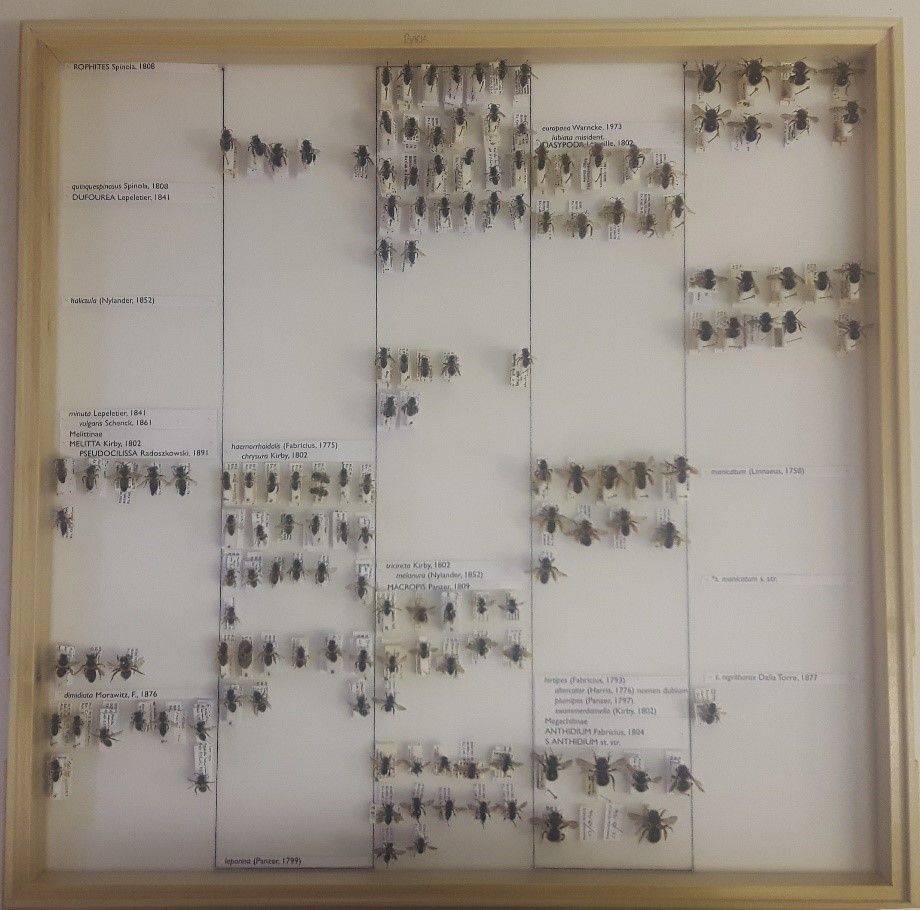
If you have enjoyed Culture on Call and you are able to make a donation, please click the link below. Any support you can give will help us keep communities connected to culture in these difficult times.





